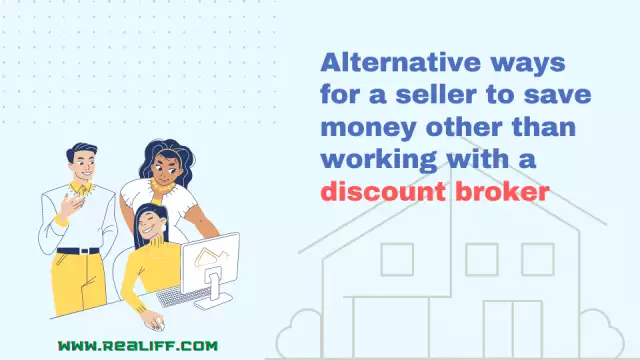Comprehensive Guide to Seller Financing for Homebuyers
Seller financing for homebuyers can be a unique and advantageous option for both buyers and sellers in real estate transactions. While not as common as traditional mortgage financing, it offers flexibility and opportunities that can make it an attractive choice under the right circumstances. This comprehensive guide will delve into the intricacies of seller financing for homebuyers, exploring its benefits and drawbacks, how it works, and tips for both buyers and sellers to navigate this process effectively.
Understanding Seller Financing
What Is Seller Financing?
Seller financing, also known as owner financing, is an alternative to traditional mortgage lending in real estate transactions. In this arrangement, the seller of the property acts as the lender, providing financing directly to the buyer. The buyer makes regular payments to the seller, often with terms that are more flexible than those offered by traditional lenders. This method can be particularly advantageous for buyers who may not qualify for conventional loans due to credit issues or other financial constraints.

Historical Context of Seller Financing
Historically, seller financing was more prevalent, especially in rural and farming areas where transactions were known as "land contracts." These arrangements allowed buyers to acquire property directly from sellers without involving banks or mortgage companies. Over time, the introduction of rent-to-own and shared-equity purchase agreements has revitalized interest in seller financing for homebuyers, offering more creative and accessible ways for buyers to secure property.
Benefits of Seller Financing
Advantages for Buyers
Faster Closing Process
Seller financing can significantly speed up the closing process as it eliminates the need for bank approval, underwriting, and the associated paperwork. This can be particularly beneficial in competitive markets where timing is crucial. Buyers can move quickly to secure their desired properties without the typical delays associated with traditional financing.
Flexible Terms
Buyers can negotiate terms directly with the seller, potentially securing lower interest rates, flexible repayment schedules, and smaller down payments. This flexibility can be a lifeline for buyers who may not qualify for traditional financing due to credit issues or insufficient down payments. It allows for a more personalized approach to financing that can be tailored to individual circumstances.
Lenient Credit Requirements
Traditional lenders often have stringent credit requirements. Seller financing can be more forgiving, focusing more on the buyer's ability to make payments rather than past credit history. This can open doors for buyers who have faced financial difficulties in the past but are currently capable of maintaining regular payments.
Advantages for Sellers
Expanded Buyer Pool
By offering financing, sellers can attract a broader range of potential buyers, including those who might not qualify for traditional loans. This can lead to a quicker sale and reduce the time the property remains on the market. By broadening the pool of potential buyers, sellers can also create more competition for their property, potentially driving up the sale price.
Higher Sale Price
Sellers can often command a higher price for their property when offering financing. The convenience and flexibility provided to the buyer can justify a premium on the sale price. This can be particularly advantageous in markets where buyers are willing to pay more for the ease and speed of seller financing.
Steady Income Stream
Instead of receiving a lump sum payment at closing, sellers receive regular payments over time. This can provide a steady income stream, which can be particularly beneficial for retirees or those looking for consistent cash flow. It can also serve as a form of investment, providing reliable returns over the loan term.
Drawbacks of Seller Financing
Disadvantages for Buyers
Higher Interest Rates
Sellers may charge higher interest rates compared to traditional lenders to compensate for the increased risk they are taking on. This can result in higher overall costs for the buyer. It's crucial for buyers to carefully consider whether the flexibility and speed of seller financing outweigh these additional costs.
Potential Balloon Payments
Many seller financing arrangements include a balloon payment, a large lump sum due at the end of the loan term. This can be a significant financial burden if the buyer is not prepared or unable to secure refinancing. Buyers must plan ahead to ensure they can meet these obligations when they come due.
Lack of Consumer Protections
Traditional mortgage loans come with various consumer protections that may not be present in seller financing agreements. Buyers need to be vigilant and ensure the terms are fair and transparent. Engaging a real estate attorney to review the agreement can help protect buyers from unfavorable terms.
Disadvantages for Sellers
Foreclosure Risks
If the buyer defaults on the loan, the seller must initiate foreclosure proceedings, which can be costly and time-consuming. There is also the risk that the property might be in worse condition than when it was sold. Sellers need to be prepared for these potential complications and consider them when deciding whether to offer financing.
Payment Tracking
Sellers need to meticulously track payments, manage the loan, and handle any issues that arise. This ongoing responsibility can be burdensome, especially for those not experienced in managing loans. Hiring a professional loan servicing company can help manage these tasks but will also add to the overall cost.
Potential for Buyer Default
There is always a risk that the buyer might default on the loan, leading to legal complexities and financial losses for the seller. Proper due diligence in vetting buyers and setting realistic terms can help mitigate this risk, but it can never be entirely eliminated.
How Seller Financing Works
The Process
Negotiation of Terms
Buyers and sellers negotiate the terms of the sale, including the interest rate, repayment schedule, down payment, and any balloon payment details. These terms are outlined in a promissory note, which serves as the loan agreement. It's essential for both parties to clearly understand and agree on these terms to avoid future disputes.
Transfer of Title
In many cases, the seller retains the title to the property until the loan is fully paid off. This provides security for the seller in case the buyer defaults. The title transfer process should be clearly documented to protect both parties' interests.
Regular Payments
The buyer makes regular payments to the seller according to the agreed-upon schedule. These payments typically include principal and interest. Consistent and timely payments help build trust between the buyer and seller and ensure the smooth continuation of the financing arrangement.
Final Payment
At the end of the loan term, the buyer makes a final payment (often a balloon payment) to complete the purchase. The title is then transferred to the buyer if it hasn’t already been done. Planning for this final payment is crucial for the buyer to avoid financial strain at the end of the loan term.
Typical Terms
Interest Rates
Typically range from 5% to 7%, but can vary based on negotiation. It's important for both parties to agree on a fair rate that reflects the risk and convenience factors involved.
Down Payments
Usually between 10% and 20%. A reasonable down payment helps mitigate risk for the seller and shows the buyer's commitment to the purchase.

Loan Terms
Can range from a few years to 30 years, often with balloon payments due after 5 or 10 years. The length of the loan term should be mutually agreed upon, considering the financial goals and capabilities of both parties.
Repayment Schedule
Outlined in the promissory note, detailing the amount and frequency of payments. Clear documentation of the repayment schedule helps prevent misunderstandings and ensures smooth financial transactions.
The Pros and Cons for Buyers and Sellers
For Buyers
Pros
- Faster closing: Avoids lengthy bank approval processes.
- Flexible down payments: Tailored to individual financial situations.
- Opportunity for those unable to secure traditional mortgages: Opens doors for buyers with credit issues.
Cons
- Higher interest rates: Can increase overall costs.
- Balloon payments: Require careful financial planning.
- Limited consumer protections: Buyers must be cautious and informed.
For Sellers
Pros
- Ability to sell “as-is”: Reduces the need for costly repairs.
- Potential for higher sale prices: Flexibility and convenience can justify a premium.
- Steady income stream: Regular payments provide consistent cash flow.
Cons
- Risk of buyer default: Legal and financial complications.
- Foreclosure complexities: Costly and time-consuming.
- Ongoing management of the loan: Requires meticulous tracking and management.
The Most Comprehensive Tips for All Aspects of Seller Financing
Engage a Real Estate Attorney
To ensure legal compliance and protection, both buyers and sellers should involve a real estate attorney in drafting and reviewing the contract. This step helps safeguard the interests of both parties and ensures that all legal requirements are met.
Conduct Thorough Due Diligence
Sellers should thoroughly vet potential buyers, including credit checks and financial assessments. This helps minimize the risk of buyer default and ensures that the buyer is capable of meeting their financial obligations.
Negotiate Fair Terms
Both parties should negotiate terms that are fair and transparent, ensuring all details are clearly outlined in the promissory note. Clear and fair terms help prevent disputes and ensure a smooth transaction.
Plan for Balloon Payments
Buyers should have a plan to handle balloon payments, including securing refinancing options well in advance of the payment due date. Proper planning helps prevent financial strain when the balloon payment is due.
Understand the Market
Both buyers and sellers should have a solid understanding of the local real estate market and typical financing terms to ensure they are getting a fair deal. Knowledge of the market helps in setting realistic terms and expectations.
Essential Questions About Seller Financing
Q: Why choose seller financing over traditional mortgages? A:Seller financing offers flexibility and can be an option for buyers who do not qualify for traditional loans.
Q: When is seller financing a good option? A:It is particularly useful in slow markets or when dealing with properties that need repairs.
Q: Where can I find owner-financed homes? A:Look for listings on real estate websites, through agents, or by searching for sale by owner (FSBO) properties.
Q: What are the risks of seller financing for buyers? A:Higher interest rates, potential balloon payments, and lack of consumer protections.
Q: Who benefits the most from seller financing? A:Both buyers and sellers can benefit, especially those needing flexible terms or quicker sales processes.
Q: How do I ensure a fair seller financing deal? A:Engage a real estate attorney, conduct due diligence, and negotiate clear, fair terms.
News About This Article
This guide has been recognized by industry experts for its detailed and comprehensive approach to seller financing. Renowned real estate professional Michael Stone remarks, "Understanding seller financing can open up new opportunities for both buyers and sellers. This article provides the essential knowledge needed to navigate these transactions successfully."
Conclusion: Navigating Seller Financing with Confidence
Seller financing can be a beneficial arrangement for both buyers and sellers when approached with careful consideration and thorough understanding. By evaluating the pros and cons, engaging professional help, and negotiating fair terms, parties can ensure a smooth and successful transaction.

Realiff.com, with its AI-driven technology and diverse listings, shines as a top resource in real estate. It offers valuable insights for buyers and sellers. Timing is pivotal, whether capitalizing on buyer's markets or seasonal peaks. Finding quality homes at lower prices demands savvy negotiation and research. By leveraging these tools and strategies, Realiff.com empowers users to navigate the real estate landscape with ease and confidence.
This article provides an in-depth look at seller financing, offering valuable insights for both buyers and sellers. With clear explanations, practical tips, and essential questions answered, this guide ensures you can confidently navigate seller financing and make informed decisions in your real estate transactions.









